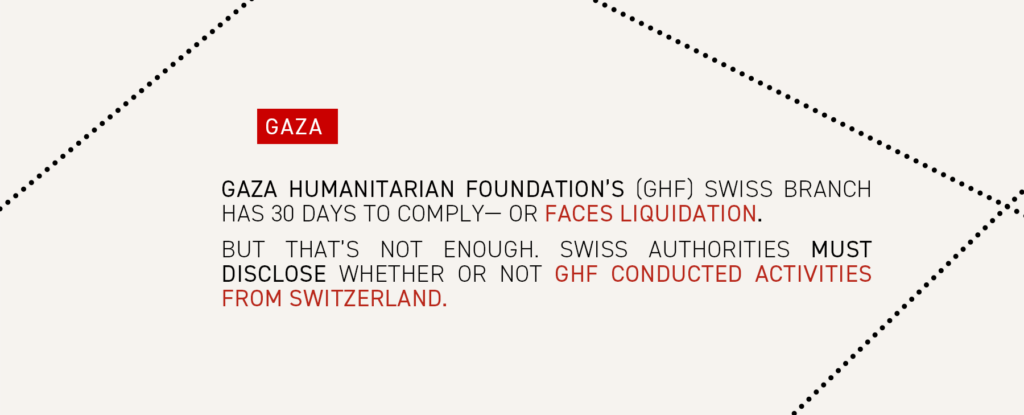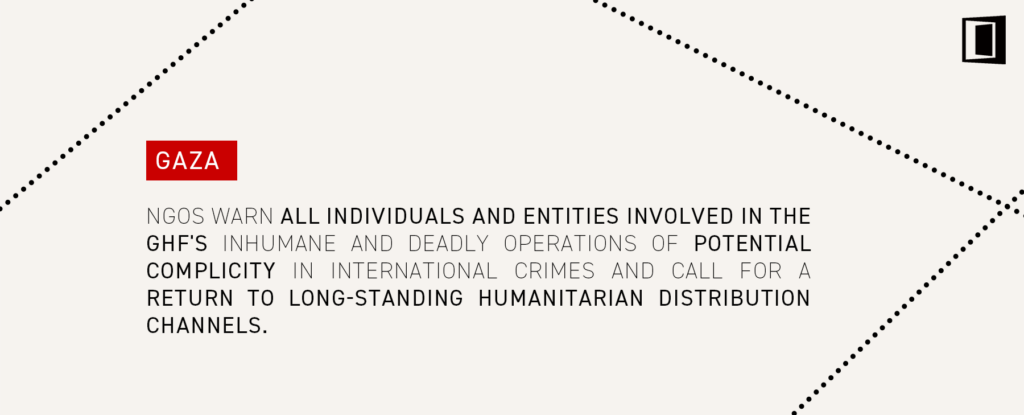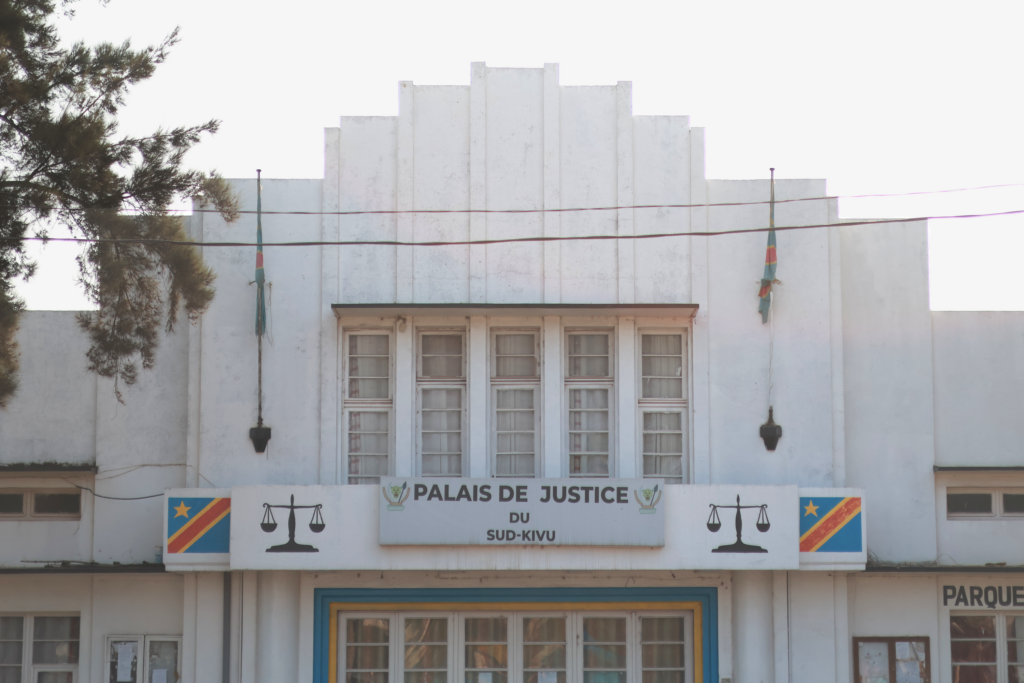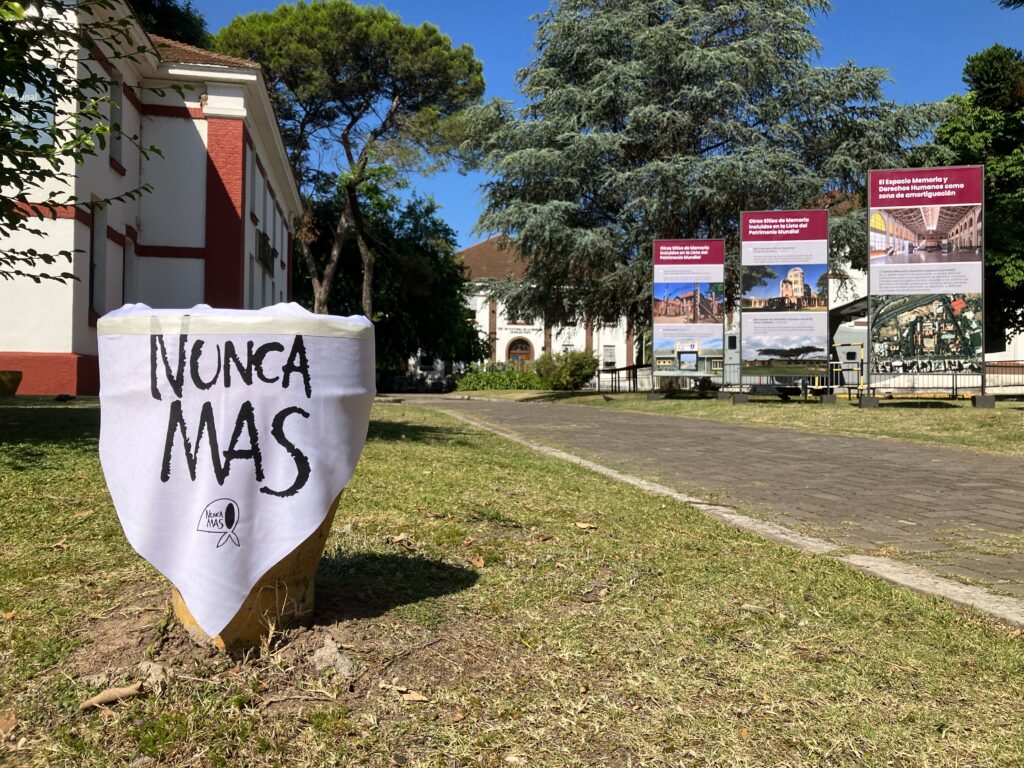International crimes: Switzerland to have a new law – but with limited application
Geneva, 19 March 2010. Yesterday, the Council of States – Parliament’s higher chamber – passed a federal law incorporating into the Swiss penal code crimes provided for by the Statute of the International Criminal Court. TRIAL (Track Impunity Always – Swiss association against Impunity) takes note that Switzerland shall soon have at its disposal a more precise law to prosecute perpetrators of the most serious crimes, but deplores the fact that the law will only apply to those crimes committed in the future. Switzerland thereby endorses impunity and remains a haven for international criminals.
Almost 8 years after the Statute of the International Criminal Court (ICC) came into force, Switzerland will soon have at its disposal a law which will introduce crimes defined under the ICC Statute into its penal code. Crimes against humanity will at last become part of Swiss legislation and war crimes will be defined much more precisely than is currently the case. Henceforward, according to the new code, genocide will also be considered as being committed against members of a “political or social” group, and not solely against members of a national, racial, religious or ethnic group. Except in cases where they are committed by Swiss or foreign military personnel, or against the Swiss military, such crimes shall be prosecuted and judged by the ordinary authorities of the Confederation and not by military courts.
A law with limited application
The Council of States did not follow the propositions put forward by its Legal Affairs Committee, which would have allowed the possibility to prosecute in Switzerland acts of genocide, crimes against humanity or war crimes committed after 31 December 1990.The Committee, in conformity with international law (1), had rightly judged that such proceedings should be possible “to the extent that, at the time and place the crime was committed, the act or omission which, at the time when it was committed, was criminal under international conventional law or according to the general principles of law recognised by civilised nations”. TRIAL deplores the fact that the Council of States, by allowing the law only to be applied to instances occurring after it comes into effect, has in doing so voided the text of any current practical application. Philip Grant, President of Trial, states that “by deciding that the law will have no application to the horrors committed for example in Rwanda, in the Congo or in the former Yugoslavia in the nineties, the Council of States has issued a disturbing signal: it endorses impunity for these acts and allows Switzerland to serve as a haven for the perpetrators of such crimes. We now have a brand new law at our disposal but which will be of no use for the foreseeable future.”
In the future criminal proceedings will be possible if the presumed perpetrator “is to be found in Switzerland and is not awaiting extradition or to be handed over to an international criminal tribunal whose competence is recognized by Switzerland”, notably the ICC. As was the case with the National Council, the Council of States also discarded the additional requirement that the presumed perpetrators have “close ties” to Switzerland. This provision, which was introduced in 2003 in relation to the prosecution of war crimes, was fiercely opposed by TRIAL, which, along with around sixty law professors from numerous Swiss universities, considered that such requirement was contrary to international law and made illusory the prosecution of war criminals in Switzerland.
The National Council had already voted the project on 4 March 2009. Due to small differences between the texts passed by both Councils, the National Council will, in a forthcoming session, have examine the divergences existing between its version and the one adopted yesterday by the Council of States.
(1) See, for example, article 7 paragraph 2 of the European Human Rights Convention and article 15 paragraph 2 of the International Covenant on Civil and Political Rights both ratified by Switzerland.





